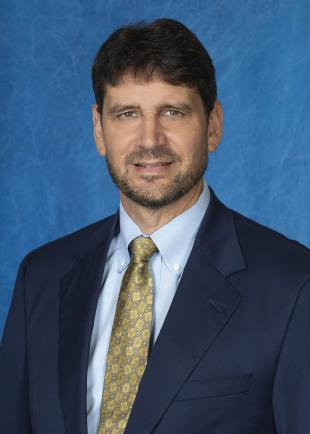Dr. Daniel D. Sternlicht is the Distinguished Scientist for Littoral Sensing Technologies at the U.S. Naval Surface Warfare Center Panama City Division (NSWC PCD), where he serves as technical expert in sensing technologies relevant to the full spectrum of littoral warfare systems; provides subject matter expertise across the Naval Research and Development Establishment; and leads new developments in maritime reconnaissance and surveillance for Navy and Marine Corps missions. During a career that includes scientific research and program and line management, Dr. Sternlicht’s pioneering work in through-the-sensor environmental characterization, multi-sensor fusion, automated change detection, and advanced techniques for localization and classification of underwater munitions, combined with his leadership in developing and transitioning state-of-the art sensing systems into the Fleet and scholarship in the historical development of U.S. Navy sensors, has led to international recognition as an authority in maritime reconnaissance and surveillance technologies.
Dr. Sternlicht received the B.A. degree in Biology from the University of Pennsylvania, Philadelphia, the M.S. degree in Electrical Engineering from the University of Hawaii, Manoa, and the Ph.D. degree in Electrical Engineering and Applied Ocean Science from the University of California, San Diego and Scripps Institution of Oceanography. He lectures regularly at civilian and military colleges and universities, has chaired numerous technical conference sessions, was guest editor for the IEEE Journal of Oceanic Engineering 2009 Special Issue on Synthetic Aperture Sonar, and is Executive Co-Chair for the upcoming 2022 MTS/IEEE OCEANS technology conference. In 2013 Dr. Sternlicht received the Department of the Navy Meritorious Civilian Service Award, and in 2018 he was promoted to the position of Senior Scientist & Technology Manager (SSTM).
Abstract
SENSING AND AUTOMATION IN THE FUTURE MARITIME ENVIRONMENT
In this emerging era of great power competition, the goal of outpacing potential adversaries in the development of military technology takes on a new urgency. Evolving capabilities in sensing and automation are driven by a trade space that includes range and lethality versus close engagement and survivability; finders versus hiders; connection/aggregation/centralization versus disconnection/disaggregation/decentralization; and planning and judgement versus reaction and autonomy. Cooperative networks of offboard systems will be essential to future maritime operations – where the balance between maintaining control with full communications and accepting the risk of acting without (or with limited) communications will continue to evolve with technology. This paper discusses developments in advanced sensors and automation that will be key to realizing a networked force of manned and offboard systems with the ability to sense, comprehend, communicate, predict, plan and take appropriate action in the future maritime environment.









